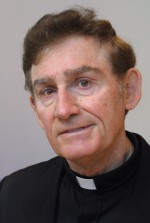Recently, Republican presidential candidate Rick Santorum said the pope should “leave science to the scientists.” His sentiment is echoed by those who deny climate change and contend that the church should stay out of the debate — following the release of “Laudato Si'” and the conversation that the pope’s encyclical letter on the environment has generated.
Before dismissing the church and its role in science, those who deny climate change need to study history, and they will see that Catholic scientists have radically changed the world. Some of them include Nicolaus Copernicus, Gregor Mendel and Roger Bacon.
Mendel is an excellent example of the church’s contribution to science. Mendel is known in scientific circles as the founder of the modern science of genetics. Almost anyone who has taken a biology or science class probably has heard of his pea plant experiments. They helped establish the rules of heredity. What they probably don’t know or remember is that he was an Augustinian friar.
[hotblock]
You may not know this, but Holy Cross Father Julius A. Nieuwland discovered synthetic rubber while at the University of Notre Dame. He studied at The Catholic University of America, where he also made some discoveries. We must wonder about other science students at Catholic universities throughout the world who have made discoveries over the centuries and whose contributions make life better for everyone.
Yet throughout church history, some Catholics and church authorities have contended that involvement in science and other areas of society should be secondary with the church’s main emphasis on theology.
This sentiment also was apparent when Catholics marched to protest racial injustice in the United States and were seen as diverting attention away from the church’s main mission.
I can still remember a friend who was a priest and was shot while marching in Alabama to end segregation. He returned home only to be shunned as a renegade by some priests and parishioners. They said he was involved in what they considered “nonpriestly work.”
Fortunately, this sentiment is waning as the church broadens the understanding of social justice.
A stickier point regarding the encyclical — which focuses on ecology and our duties as Christians — is that giant conglomerates and politicians are trying to downplay or attack what’s being discussed in the encyclical. How much of this resistance is about economics and political clout? Are some so steeped in entitlement to power that they are threatened by this document?
Encyclicals raise prudent questions aimed at producing greater knowledge. We can only hope we will see this as a result of Pope Francis’ encyclical.
PREVIOUS: Pope’s encyclical called ‘a watershed moment for church, humanity’
NEXT: Charleston tragedy should drive us to, not away from, church




I would think that these two come to be ashamed of their comments about the Holy Father’s wise guidance.
The Pope puts forth conclusions about science without any references to scientific research that proves his thesis. He states, “a very solid scientific consensus…” without identifying who and what the “solid, scientific” evidence is. It is disturbing to know that the Pope”s leading adviser on environment armageddon is Hans Schellnhuber, a German climatologist who for years touted population control (abortion, et. al) as the best means of protecting the environment. It is extremely disturbing that Marcel Leroux, a leading French climatologist, was UNINVITED (only days before) to the Vatican symposium on climate change. The Pope missed a chance to learn why there are doubters (leading scientists) who do not see a credible connection to humans and environmental changes.
You may not realize this but the Catholics mentioned were scientists who happened to be Catholic. The Pope is off base in his position on global warming as the scientific world is split in its position. He is the leader of the Catholic world and his position on faith and morals is to be followed. Now the only thing missing is his membership in the Democrat party in the USA. The other problem with your article is that there is no discourse on the topic. Have you been instructed to support the Pope and expect blind obedience?